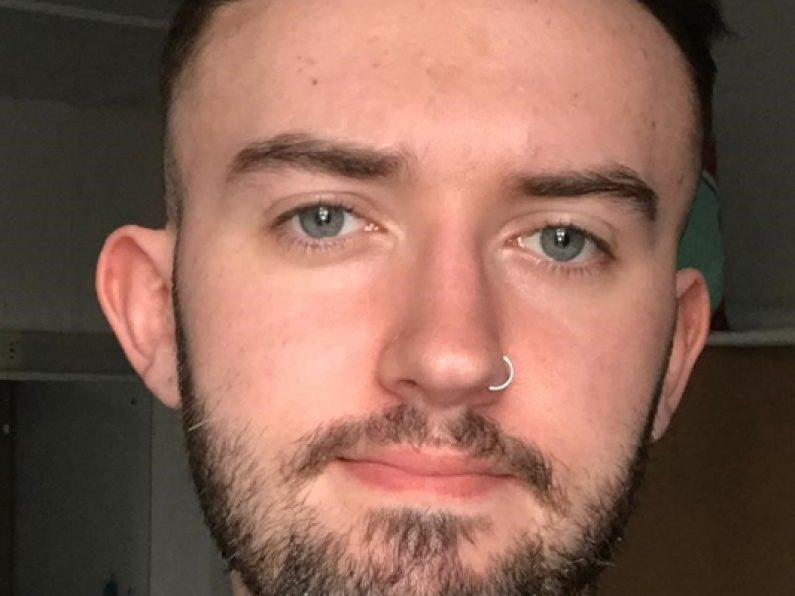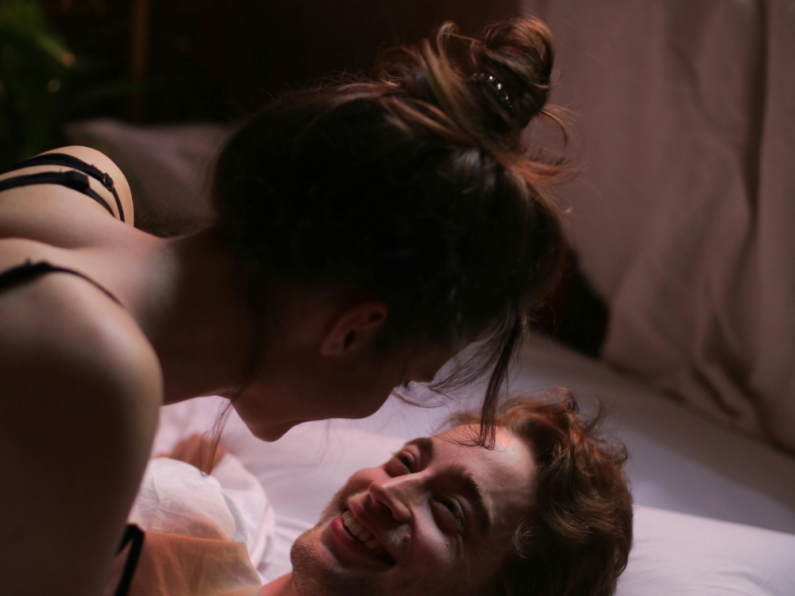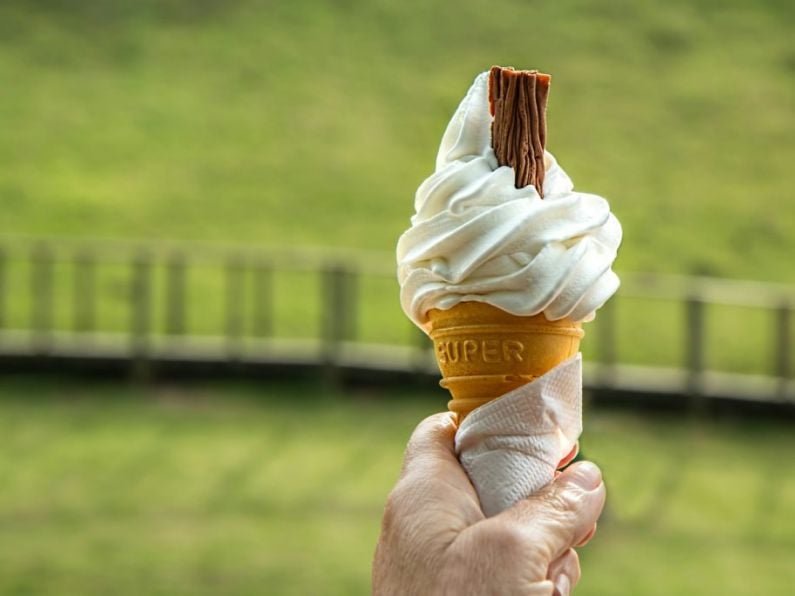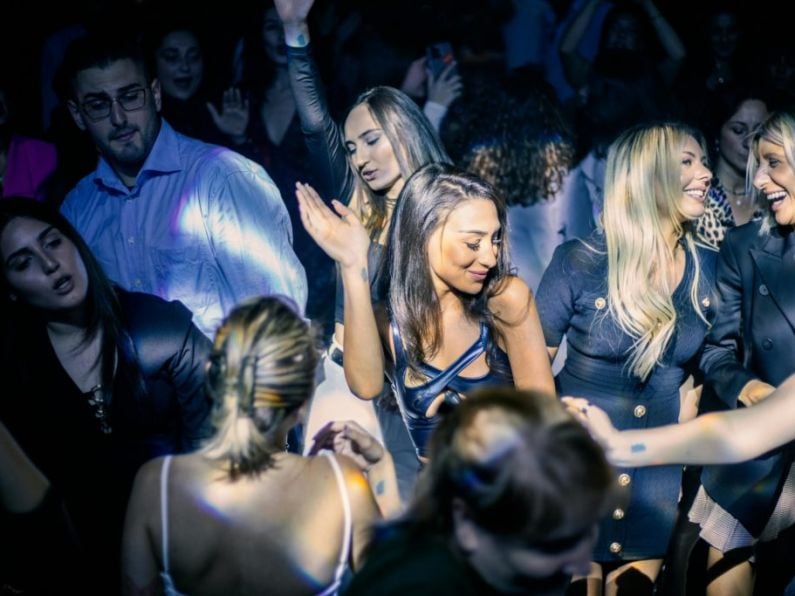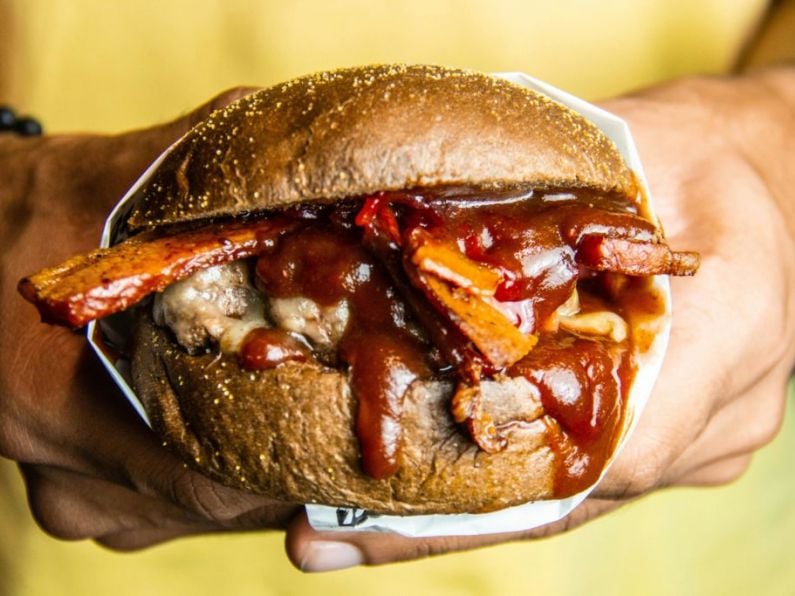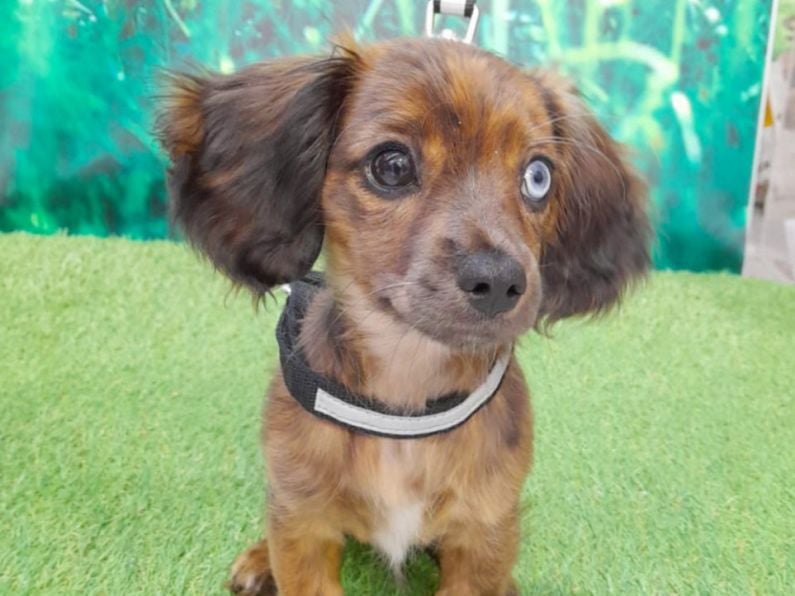We're dedicating September to diversity on Beat.
This week, Shonagh chats to Wexford's Luke Nolan who co-founded Na Gaeil Aeracha, Ireland’s first LGBTQ+ GAA Club!. This is his story...
"I left sport because I felt it was a place where i didn't belong."
We're dedicating each Wednesday in September to people who're creating a more diverse South East - this week we chat to Luke Nolan who co-founded Na Gaeil Aeracha, Ireland’s first LGBTQ+ GAA Club! pic.twitter.com/WwPlKUlGb4
— Beat 102 103 (@beat102103) September 30, 2020
"My background in sport is relatively recent, only coming back to it in my college years, after struggling with who I was in secondary school and losing interest", he said.
"By meeting friends who were also gay and interested in playing sports, I was able to come back to it and become passionate about them.
"This club for me is a way to help give that experience to LGBTQ+ people from around the country, to help them feel comfortable in themselves and to find community through them.”
________________________________________________________________________________
Last time around, Shonagh chated to Mindulee Seneviratne who became the first cultural head girl in her school in Wexford town. This was her story...
"Hi, my name is Mindulee Seneviratne and I was born in Sri Lanka before I came to Ireland in 2003 when I was around a year old. I started off in Gorey before I moved to Wexford town where I started my schooling journey. Starting off wasn’t very easy for my parents and I as we had come from a very different background and lifestyle but now I know that they left everything they had to start a new life for me and my little brother who was born here in Ireland.
I started school in Scoil Mhuire and surprisingly it was some of the best years of my life. As soon as I started school I felt welcome as there were so much diversity and culture there and I felt so at home.
"I wanted to prove that girls from different backgrounds can do anything they set their mind to."
We're dedicating each Wednesday in Sept to those who're creating a diverse SE. Today we chat to activist Mindulee Seneviratne who became the first cultural head girl in her school. pic.twitter.com/2pw3GwBWU1
— Beat 102 103 (@beat102103) September 23, 2020
In 2014, I started the next stage of my life in Loreto Secondary School Wexford. Enrolling into this school was a big deal for me as my family is Catholic and it was a dream of mine since I was younger. When I came into First Year something that I realised was that in my class there were four girls of colour, including me, and they were the only girls in the school that I could see were from different cultures. At first, it was quite intimidating for us as little first years but as the years went by and as we grew through the school I noticed a lot more girls coming into the school of different cultures which was great and seeing the diversity of the school while growing up was very pleasing to see.
When it came to 5th year we got an assembly from our school principal saying that they will be holding interviews for the next years Head Girls. As soon as I heard about it I knew that I had to try and go for it because I knew that I had something to prove. I wanted to try and be the first cultural head girl that the school has ever appointed. I noticed that through my years in school there was never a head girl from a different culture and I wanted to try my best to prove that girls from different backgrounds can do anything they set there mind to regardless of their culture. And so I did, I was appointed as one of the head girls for 2019/2020. I can’t explain how shocked and thrilled I was. I did something that I was really passionate about and something that my parents and family were extremely proud of me for.
I took part in the two multicultural weeks that were held in our school which began in 2018 and I was extremely impressed at the amount of support we had received from the school and the publicity we got from the public and radio. Celebrating the different cultures of the school was a big step taken by the school and I do hope they will continue this tradition in many years to come.
Unfortunately because of COVID we were not able to fulfil all of our responsibilities to the end of 6th year but we had a good run for the time we had. Because of the circumstances, I received my calculated grades and I’m very pleased that I am able to study my chosen course which is Biomedical Sciences in Maynooth and I couldn’t be happier
_______________________________________________________________
Each Wednesday Shonagh is shining a spotlight on those in the South East who are fighting for an inclusive and diverse Ireland.
On week three, we caught up with 16-year-old Bolade Ojoulape from Kilkenny.
Bolade set up a campaign with her friend called Teach Tolerance at the peak of the Black Lives Matter movement.
Speaking about the campaign, Bolade says she simply acted on something she was extremely passionate about.
"Growing up I never really knew who I was meant to be and what I was meant to act like", she says. " There were no role models in media for me to look up to. I know this is the case for me and so many others here in Ireland. I was able to find myself, but for a lot of people out there this isn’t the case.
"I think teaching tolerance in schools is the boost we need to get people to express and feel themselves as much as possible."
Having been bullied a lot as a child, Bolande said she would feel the need to be cool or to conform. "I really lost my voice as a person", she notes.
One particular experience that stood out to Bolande occurred on her first week of secondary school when a teacher asked her if she was a refugee. "This really changed my perspective on who I was; I became ashamed of myself. Finally, I came out of my shell when I started watching shows that encouraged black empowerment, [helping] me to feel myself again."
At the centre of their movement is a petition which Bolade and her friend are hoping to bring to the Government. The petition, which is calling for racism to be taught in Irish schools, reads:
We are two Irish teenagers. One an ally and is very supportive of anti-racism and BLM movement, the other a Nigerian-Irish POC who just wants for everyone to be treated equally.
Ireland is a friendly, welcome, kind and accepting place. We’ve seen this with things like the LGBTQ acceptance, the integrations of different faiths in schools and in our daily lives. But for some people (including us) we aren’t quite there yet.
Racism is something that is not only not talked about in our country but is the basis of thousands of people across the country’s discrimination, bullying and violence. This is not okay at all. As a country who was seemingly so accepting to other races and culture coming into Ireland, it is truly hard to believe that we have neglected to teach about the history of racism, privilege and how it affects media in schools to children.
_________________________________________________________
On week two, we're chatted with 21-year-old Cody Sweeney from Waterford.
Cody, who lives in Dunmore East, came out as female to male transgender back in 2015 to his auntie Sarah who approached his parents with the news. Speaking to Beat, Cody said his "parents thought it was just a phase at the start but suddenly regretted what they said and they have accepted me 100% ever since."
Cody is on testosterone and has had his gender and name legally changed as well as having had top surgery. But the process doesn’t end there as he is waiting for a consultation in two weeks time for his next surgery which he says "is very exciting."
"I love to share my story and to let people know they are not alone! Social media has been a huge thing for me and something that has gotten me through the hard times, I’m so proud to say I have over 4K followers on TikTok (itz_codyjamie) where I share videos related to my transition," he said.
"I’m forever grateful for all the support I have been given and I’m so lucky to be where I am today, to anyone out there just know you're not alone and there’s always someone out there that will accept you, just stay hopeful and never be afraid."
__________________________________________________
We featured 17-year-old Noon Abubakar in week one...
Noon, who moved to Ireland four years ago from Sudan is a prominent human rights activist and was due to speak at the postponed Black Lives Matter protest in Wexford earlier this summer.
Speaking to Beat, Noon says she has experienced racism in Ireland, saying such actions "have made me feel different and silenced."
While Noon admits that a lot of racism in Ireland is borne "from a place of ignorance and not malice" the effect it has on her and other people of colour "is still the same."
Whether it’s saying the n-word, or making an ignorant comment/joke or refusing to educate yourself on the experiences of those who are not the white majority, there is always a lasting effect", she says.
"There is always the emotional labour of trying to decide whether or not I should speak up. Eventually, I decided I should."
This is Noon's story...
